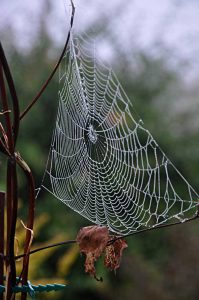This is the season for letting our prayer be inspired anew by closeness to nature … to reflect on our lifestyles … for undertaking prophetic actions … directing the planet towards life, not death’. (Pope Francis)
Nerys writes: As you prepare to worship today, I encourage you to have with you something that reminds you of the natural world. It may be a bloom from your garden, something you found on a walk or a picture of a familiar landscape. As you gaze on it or on the autumnal photo below, let it remind you of times when you felt at one with God in creation.

C. S. Lewis described Psalm 19 as ‘the greatest poem in the Psalter and one of the greatest lyrics in the world’. It is certainly the meditation of a close observer of the natural world and of human life. With a spirit of wonder, awe and deep reverence, the psalmist firstly celebrates God’s glory as it is revealed through the cosmos before praising God’s goodness made manifest through Scripture. Then with honesty and humility, he addresses God directly, expressing his concern that, despite its pervasiveness, we humans so often miss God’s presence in creation, and that despite the clarity of God’s law, we often become lost. Yet, the psalm finishes with an expression of profound confidence in God to whom the psalmist has given over his whole life.
In our Gospel passage, Mark 8.27-38, Jesus challenges his disciples’ perception of who he is and what kind of life lies ahead of them as his followers. Peter may have the right title in calling him Messiah but he clearly has the wrong understanding of what that title means. Jesus is not a leader who will establish God’s rule with power and authority and bring his followers glory and reward. Instead, he will bring freedom from injustice and oppression through his own humiliation, suffering and death. Try to imagine how shocking and scandalous this would have sounded to those first followers. And, to add insult to injury, they are told that to serve this Messiah they would need to be ready to suffer and to give up their own lives also.
Jesus tells Peter that he is getting it wrong because he is looking at things from a human perspective rather than through God’s eyes. This is a challenge to all of us, as we the Church in every generation struggle not only to see and think, but also to live out our lives, as followers of our crucified Christ. The first readers of Mark’s Gospel lived at a time of political crisis which led to the severe persecution of those ready to take the risk of being known as Christians. Today, we are in the midst of a series of crises, health, environmental, food, economic and social, which are all deeply interconnected. These demand sacrificial changes to our way of life if we are to continue to follow the teaching of Christ.
Last Wednesday, on the World Day of Prayer for the Care of Creation, Pope Francis, Archbishop Justin Welby and Ecumenical Patriarch Bartholomew took the unprecedented step of issuing a joint statement. In it they call on everyone, whatever their belief or worldview, ‘to endeavour to listen to the cry of the earth and of people who are poor, examining their behaviour and pledging meaningful sacrifices for the sake of the earth which God has given us.’ They call especially on Christian communities world wide to act and pray together, sharing with the rest of humanity a vision for a world where everyone flourishes.
At our whole church service last Sunday morning, those present wrote down their dreams for the world. I have woven them into a prayer which I invite you to make your own by adding your own hopes and dreams.
Creator God,
We listen as the heavens declare your glory and seek to join in with the song of Creation.
And yet sometimes our words fall short and our very actions cause us to fall on our face.
Lord, even if we appear foolish to the world, let us proclaim Christ crucified.
Let your presence be in us, around us, breathing new life into us, so that we may do the work you have called us to.
We pray for a world where there is peace, fairness and tolerance
• where we live in harmony with all of creation
• where every person and living creature is equally valued
• where the unloved are loved as much as the lovely
• where everyone is cared for
• where there are no refugees, no weapons, no war
• where resources are shared
• where everyone has enough to live
• where there is clean water for all
• where all children get a proper education
• where plants and wildlife flourish
• where the seas team with fish and the land is full of bees and birds and butterflies
• where animals are not hunted for their skins, tusks, fur or bodies
• where there is no plastic pollution in the seas endangering fish
• where oil-spills and overfishing have no place
• where everyone respects each other and the natural world
• where we can all live without fear of deadly weather events.
Now let the words of our mouths
and the meditation of our hearts be acceptable to you,
o Lord, our rock and our redeemer. Amen.






